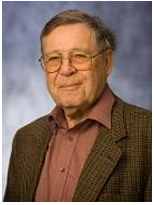
Dr. K. Warner Schaie began the Seattle Longitudinal Study (SLS) in 1956 in cooperation with the Group Health Cooperative of Puget Sound (GHC). Dr. Sherry L. Willis became principal co-investigator of the study in 1983. The purpose of this research project is to study various aspects of psychological development during the adult years. Originally, in 1956, five hundred GHC members were randomly selected. They ranged in age from their early 20s to late 60s.
The study has continued in seven-year intervals since 1956: 1963, 1970, 1977, 1984, 1991, 1998, and 2005. At each interval, all persons who had previously participated in the study were asked to participate again. In addition at each seven-year interval until 1998, a new group of people randomly selected from the Group Health membership have been asked to participate. Approximately 6000 people have now participated at some time in this study. Of the original participants, 26 people remain who have now been in the study for 50 years.
Current participants range in age from 22 to 101 years. In addition to the main study, we have collected data in 1989/90, 1996/97, and 2003/04 from many adult children as well as sisters and brother of our main study participants in order to determine the extent of family similarity in mental abilities and other psychological characteristics. Many of these relatives were studied again in 1996/97 and in 2003/04. In 2002, grandchildren of our main study also began to participate, making the SLS the first three-generation study of cognitive abilities ever conducted in this country.
Some of our study participants aged 64 years and older also received cognitive training designed to slow or remediate cognitive age changes. Three training studies were conducted in 1983/84, 1990/91, and in 1997/98.
The Seattle Longitudinal Study is considered to be one of the most extensive psychological research studies of how people develop and change through adulthood. Dr. Schaie and his colleagues have written two monographs and over 300 articles and chapters in scientific publications on findings from this study. Dr. Schaie has testified before congressional committees regarding findings from the study, and study results have been used in legal proceedings on age discrimination in employment as well as in policy discussions regarding mandatory retirement practices in the United States and Canada.
For more information about the study, please contact K. Warner Schaie or Dr. Sherry Willis